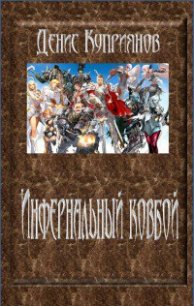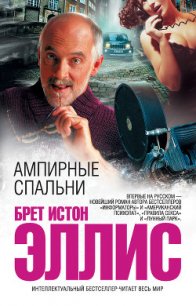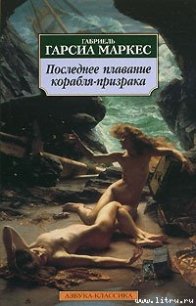The Star of Lancaster - Plaidy Jean (читать книги онлайн полные версии txt) 📗
Petronel Brocart replied that he had foreseen it but had not trusted what he saw and put it down to being a dream and not true foresight. The odds were so overwhelmingly against the English that it could only have been a last minute miracle, decided on in one moment by the powers either of good or evil —it remained to be seen which.
Joanna accepted the explanation and told them that she felt herself to be ... if not in danger, in an uneasy position because of her family in France.
Brocart made sure that he was kept up to date with the latest events which often meant he was able to prophesy a certainty; he kept messengers, whom he paid handsomely, and their duty was to give him the latest information as to
what was happening at the Court of Brittany.
Therefore he had news for the Queen; and it was not pleasant news.
*It does not surprise me/ said Brocart, 'that you feel this lack of ease. There is ill news coming to you, my lady/
Joanna glanced pleadingly from Colles to Brocart.
Tray tell me the worst. My son .. .*
'The Duke is well/ replied Colles. *He did not take part in the fighting but wisely remained neutral.'
'Your daughter's husband, the Due d'Alen^on, has been killed/ said Brocart.
Joanna put her hand to her fast beating heart; she could tell from the expression of these two men that there was more to come.
'Your brother Charles of Navarre was wounded in the battle.'
'He has since died of his wounds,' added Colles.
'And my son ... Arthur?' asked Joanna faintly.
'He is Henry's prisoner.*
*Oh my God, what will become of him?*
'He will remain in England at the King's pleasure, my lady.'
'And shall I see my son?*
'Ere long, my lady.'
'It grieves us to give you such news, dear lady.'
'I know it,' replied Joanna, 'but I must also know the truth. Do not hesitate. Is there anything more I should know?'
'We have told you all, my lady.'
Joanna wanted nothing so much as to shut herself away with her grief.
She had pleaded with the King. He must allow her to see her son. She knew that he had broken the allegiance which as Earl of Richmond he owed to England. But she was his mother and she had not seen him for eleven years when as a boy he had come to England. Perhaps she had been wrong to remind the King of that occasion for it was when he had received the investiture of Earl of Richmond.
The King replied that her son was a traitor. He had been found with England's enemy and had been taken in battle. He could not expect to be received in honour in England; he
was a prisoner, a danger to England, and Henry could see no reason why he should be treated otherwise even though his mother had been a Queen of England.
Joanna longed to see him. She greatly feared that he might be sentenced to death. Henry was severe but he was not wantonly cruel. He would understand Arthur's difficulties living as he was in Brittany at his brother's court with his brother's wife the daughter of the King of France. True, he had sworn allegiance to England, but he was young and Henry would not wish to be too harsh. Moreover Joanna was a clever woman; he had always liked her and did not want to inflict undue suffering upon her. It was unthinkable that he should release Arthur of course, but he saw no reason why there might not be a meeting between mother and son.
Arthur was to come, under guard, to Havering after which he would be taken back to the Tower of London. When she heard that he would soon be with her Joanna was overcome by emotion and she sent for her confessor, a Franciscan friar named John Randolf, and asked him to pray with her that she might prepare herself for the meeting.
*I must try not to weep,' she said. *Oh, it is a sad state of affairs when children are lost to their mothers at an early age/
'Compose yourself, my lady,* advised John Randolf. Trayer will be a solace to you. I would suggest Madam that it is unwise to rely so much on those charlatans, Brocart and Colles. They can bring no good to you.'
'They foresaw that my son would be a prisoner. They warned me in advance.'
'It is dabbling in evil powers, my lady, and will do you no good with God and his saints.'
Joanna was silent. She knew that John Randolf disliked the sorcerers, as they did him. They were suspicious of each other and jealous of the influence every one of them held with her.
But this was no time to consider rivalries.
Arthur was coming and she must be prepared for him, so she knelt with Randolf and together they asked for God's blessing and that the King's heart might be softened towards Arthur.
He was on his way. Soon he would be with her. She was trembling with excitement.
She said to one of her ladies, 'Do sit in my chair so that when he comes in he will think you are his mother. 1 will watch him for a while before I reveal myself.'
*He will know you for the Queen, my lady, by your very bearing.'
'Nay,' said Joanna, 'we shall do it this way.*
And so she was seated on a footstool at the feet of her lady attendant when her son entered. He was handsome, young, all that she could have wished him to be ... except that he was a prisoner. The guards were standing at the door to remind her of that sad fact.
He approached her lady-in-waiting and knelt at her feet. Joanna watched sadly.
'My mother,' said Arthur, 'this is a sad meeting. But I rejoice to see you.'
They embraced.
'I will present you to my ladies,' said the substitute Queen, but at that moment Joanna could sustain her role no longer.
'My son, my son,' she cried, 'do you not know me?'
Arthur looked in astonishment from the lady-in-waiting to the Queen.
'Yes,' said Joanna, 'I am your mother.'
1 see it now,' cried Arthur.
*I had to wait awhile,' said Joanna. 'My heart was too full.*
They embraced warmly, then looked at each other search-ingly. 'You were but a boy when you went away,' said Joanna.
*Oh, Mother, so much has happened since then.'
*I was so proud of you, my Earl of Richmond.'
'Alas, Mother.'
'Henry will treat you well. I would I could keep you here with me.'
*I come as a prisoner, my lady.*
Joanna nodded.
'Come, tell me of home. Tell me of your brother and your sister ... She has lost her husband.'
'Agincourt was disastrous for us.'
'And such a victory here. They are still having their pageants and their revelries, their thanksgiving services. The bells are ringing all over the country.'
'One King's victory must be another's defeat. Mother.*
'And you were on the ^vTong side.'
'It seemed so impossible that the English could triumph.*
'Nothing is certain in war/ said Joanna. 'Now we must make the best of what is left to us. It will not be long, I feel sure.'
She was right.
That day Arthur was taken back to his prison in the Tower. The brief reunion was over.
The King kept Christmas at Lambeth.
He was restive. He had won a brilliant victory at Agincourt but all it had brought him was Harfleur. He was no nearer to the crown of France than his predecessors had been.
After Agincourt it would have been the utmost folly to have marched to Paris. Wretched and defeated as it was, what was left of the French army could have stopped him. If the French were in a sad state so were the English. Many of his soldiers were suffering from dysentery. They had fought magnificently but they were in no shape to endure another battle for a while. Good general that he was he had seen there was only one thing he could do and that was return home and get together more men and more stores before he began another campaign.
He could be proud of the achievement. The French had suffered a shattering defeat and they would be demoralized. No more barrels of tennis balls would be sent by the arrogant Dauphin. It was good to contemplate what his feelings must be at this time. It was a glorious moment, there was no doubt about that, but he must not be blinded by his success.




